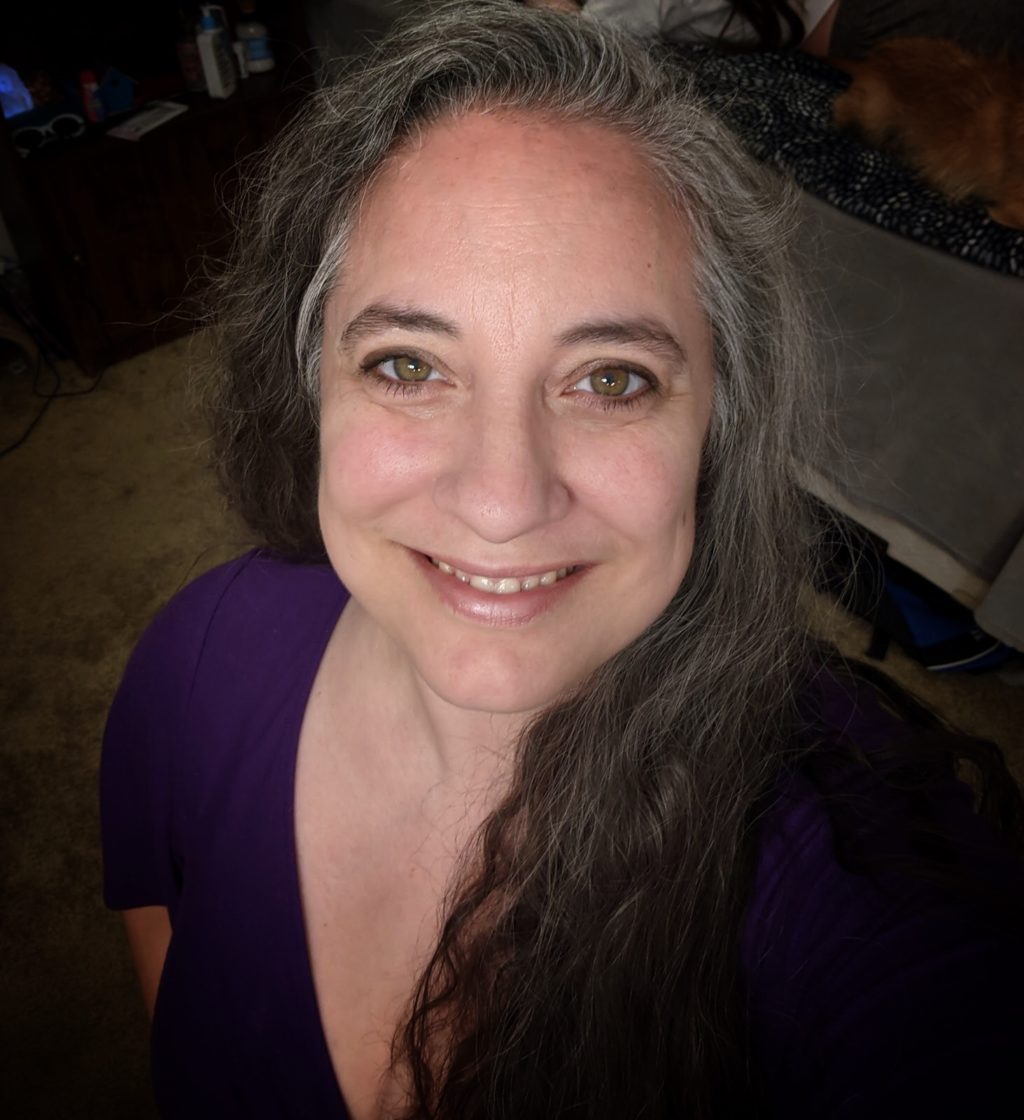
Working at the ALS started out as a summer job in college for Angelic Lucero—and then she never left. She gives us a glimpse into all the details our operators need to monitor and talks about efforts to help new people at the Lab access resources.
How did you become an accelerator operator?
I was very good at math and science in school, so people told me I should be an engineer. I applied to schools with a variety of different engineering majors and ended up at the Colorado School of Mines. When I transferred to Cal midway through college, I liked my physics classes the best, so I went for engineering physics, and Dave Attwood was my advisor. I talked to him about getting a summer job, and he set up an interview for me at Beamline 6.1.2. I ended up taking that summer job and never leaving.
What do you do as an operator?
It’s like being a firefighter in the sense that we have to be prepared to drop everything and jump into action if the beam goes down. Nothing else matters but getting the accelerator running again. It can be hard to focus on side projects because there’s several different things that might alarm in the control room that could potentially be a warning that we could lose the beam if it’s not taken care of. We have 11 different monitors that display different software that we check on an hourly basis for all the different components of the injector, accelerator, and experimental floor. It takes that much space physically to display everything. Once a shift, we do a tour around the facility to look for things like water leaks, smoke, smells, or things that could alert us to problems that haven’t affected the system yet. We almost never find those problems.
The training period is long because there’s so much that we have to know before we’re qualified to work. Once we’re qualified, we can be completely in charge of the machine with just one other person onsite with us for safety (and that person could be a new hire with no experience). Being qualified means that we’re able to take on a ton of responsibility for reliability of operations, physical safety, and equipment safety. The ALS has so many pieces, and we learn what to do in case anything goes wrong, but then we don’t use some of what we learned because many systems don’t have problems for months or years at a time.
What would you like users to know about your work?
In general, we want them to know that we are really trying to help science get done. That’s our main objective. And so we don’t mind questions; if the beam is down, you want to know how long it’ll take and if you should just go get dinner. We try to get the message out there on the status monitor and make announcements. There’s certain places on the floor where it’s hard to hear the announcements, and we are as frustrated by it as users are. We’re doing our best to get things done.
How are you involved in inclusion, diversity, equity, and accountability (IDEA) efforts at the Lab?
I got involved with IDEA efforts a couple of years ago, and I’ve really enjoyed being a part of it. One of the things that I like about working at the Lab versus working for some kind of corporation is that people actually care about what is going on with your life, not just what is going on with your work responsibilities. I’m pretty sensitive to the challenges that a lot of people face, that are different from the norm—mental health struggles, or physical disabilities, or underrepresented classes of people who have discouraging experiences. The older I’ve gotten, the more I realized that we can do something about a lot of those factors to level the playing field. We can make those resources more accessible to people. I’m the chair of the ALS Onboarding Task Force, and we created a checklist to give employees all the information that they need to be able to do their job well and to have the support that they need. We could always use some new members on the task force.
What do you like to do in your free time?
I like to spend time with my family. Baseball, definitely. A lot of times, I plan Mother’s Day around seeing a Cal baseball game because my mom loves baseball, and I love baseball. I love going to A’s games and rooting for the A’s, but I like college games because you can see the action a little bit better. I’m a softball player, and I expect that a lot of this summer, my time will be spent teaching my daughter and my niece how to pitch. I like being in nature, and softball is usually outdoors—with the winds, and the grass, in a park. It’ll be fun to share my skills with the young ladies.